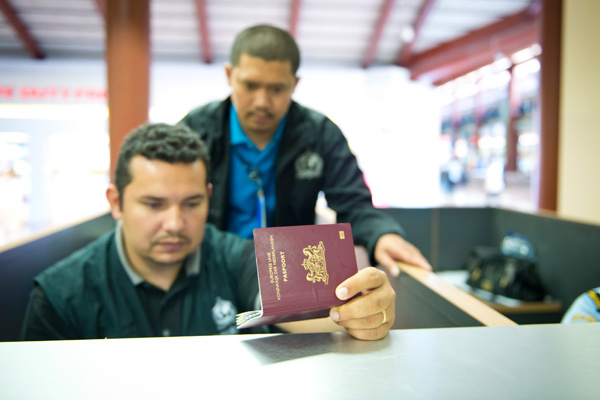On its 100th anniversary, Interpol has announced the launch of a new biometric hub, BioHUB, which is powered by Idemia’s latest Multibiometric Identification System (MBIS) and set to be rolled out to border control points globally.
The hub enables officers to identify suspected terrorists or criminals through direct photo and fingerprint checks against Interpol databases. MBIS 5 integrates new-generation algorithms which are designed to provide a higher matching accuracy rate with a shorter response time and a more user-friendly interface.
Interpol and Idemia disclosed that the first phase of its deployment to enhance the identification of potential persons of interest (POIs) has already been operational since October 2023. In mid-November, a fugitive wanted since 2021 under organized crime and human trafficking charges was arrested after the new biometric hub flagged that he was a POI as he attempted to travel through Europe.
“A fugitive can change their name and many aspects of their appearance to try and escape justice, but it is difficult if not impossible to change your biometric data,” said Cyril Gout, Interpol’s director of operational support and analysis. “This is why biometrics remain the most reliable way to identify someone.”
The second phase, which will be rolled out over the next two years, will extend this tool to border control points. The system will then be able to perform up to one million forensic searches per day, including fingerprints, palm prints and portraits, making it the top performing automated biometric identification system on the market.
Previous checks against Interpol’s biometric databases were subject to separate, multi-step processes that systematically included human handling or review, meaning that any hits may not be immediately flagged to the requesting officer. The new biometrics hub enables data to be submitted through a single interface, which provides quick results and allows users to monitor the status of their requests.
In line with Interpol’s data governance policies, biometric data run through the hub in a search is not added to the organization’s criminal databases, is not visible to other users and any data that does not result in a match is deleted following the search.
Idemia and Interpol began their collaboration in 1999, when Idemia delivered the original Automated Fingerprint Identification System (AFIS). In 2016, Interpol selected Idemia’s facial recognition capabilities to create the Interpol Face Recognition System (IFRS). The IFRS contains face images from more than 170 countries, and since its launch, thousands of terrorists, criminals, fugitives, POIs, and missing persons have been identified. In 2019, Interpol its contract with Idemia to upgrade the current system and transform it into the MBIS.

